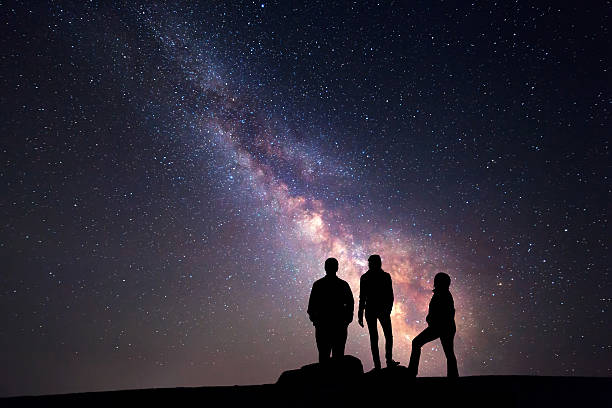Hubble's Law = the relativity of space

I want to share my hypothesis about the 'relativity of space' and 'Hubble's Law'.
If you observe an expansion of space far away from you (Hubble's Law), your first mental thought ought to be: "there must be something going on with time too"...
Because time- and spaceobservations are like twins. If something happens with one of these dimensions (f.e. space-expansion), something must happen with the other dimension too (time).
Time and space are interwoven. Spacetime.
When we observe receiding galaxies through our telescopes, obeying Hubble's law, we don't see the very fast ticking clocks outthere in the intergalactic regions, don't we?
If an observer in a spaceship A close to the speed of light, relative to Earth and relative to spaceship B, doesn't measure any change in his own spaceship, he must observe/measure a deformation of space elsewhere.
And he does observe this change elsewhere: he observes a spacecontraction of Earth and a lengthcontraction of the other spaceship B and a contraction of space in front of his spaceship in the direction of motion.
(special theory of relativity)
Observers on Earth will see that there is a lengthcontraction of spaceship A.
And you can ask yourself: why is it that the observers see the space-deformations somewhere else?
And the reason must be:
the duration of the actual moment for the observers is the same, wherever they are. An observer has everywhere the same 'normal' experience of time. The laws of newton work fine, wherever he is, in his spaceship or on Earth.
Therefore, he observes deformation of space somewhere else (Earth is contracting, there is a lengthcontraction of the spaceship far away)
Observers on Earth measure that there is nothing wrong with their clock too.
But time is contracted, by gravitational timedilation.
Because of the fact that observers on Earth have a normal time experience, they must observe deformations of space elsewhere. That's my hypothesised 'law of observation'. They observe motions of galaxies obeying Hubble's Law.
Because of a difference in time rate passage of the clocks.
It's like an equation. When one thing happens on one side of the equation, something else must happen on the other side of the equation to make it right.
If they experience time everywhere the same wherever they are, the observers' time rate passage is everywhere the same to them, they compensate this 'equality of the duration of the actual moment to them' by observing spacedistortions somewhere else.
I'm more a philosopher then a scientist. Which means that I like to add 'observers' and 'minds' to the equation.
The Lorentz transformations tell me that 'the observer's clock, and the observer's ruler in his own referenceframe are the standards for his space-observations somewhere else, wherever he is in the universe.
So, if he observes at the borders of his observable universe 'an expansion of space' (Hubble's Law), that it has something to do with his own clock and his own ruler in his own referenceframe. Wherever he is
There is this elegant symmetry in relativity that if time changes (due to gravity or relative motion), something will happen with your observations of space.
We are used to the relativity of time when we compare atomic clocks on low altitude with atomic clocks on high altitude. We also compare clocks in planes with clocks standing still on the ground. We are familiar with timedilation. Gravitational timedilation and timedilation as a result of very high speeds, close to the speed of light. We are familiar with 'the relativity of time' in our scientific experiments.
We are, however, not so familiar with experiments and observations of the relativity of space.
Space can also contract or expand.
But we have no observations of that yet, we think.
We do see a Doppler-shift-measured velocity, of various galaxies receding from the Earth, approximately proportional to their distance from the Earth for galaxies up to a few hundred megaparsecs away.
This is an observation of space-expansion.
In my opinion, it's of the same category as 'lengthcontraction'.
There is some symmetry in this thought that our observed space-expansion on the borders of our observable universe (Hubble's Law), is connected with our clocks here on Earth. With our measurement of time in our referenceframe.
Because the time rate passage of our clocks is influenced by gravity. But we do not observe this influence. Therefore we observe space-distortions somewhere else.
My law of observation:
If observers experience the actual moment everywhere the same, and (gravitational) timedilation or timecontraction is involved, they will not experience this timedistortions. The actual moment is the same, wherever they are. Therefore they willl observe spacedeformations somewhere else instead. (curvature or expansion of spaces).
Cfr: observers in spaceship at high speeds close to the speed of light, relative to Earth, in the special theory of relativity.
Maarten Vergucht